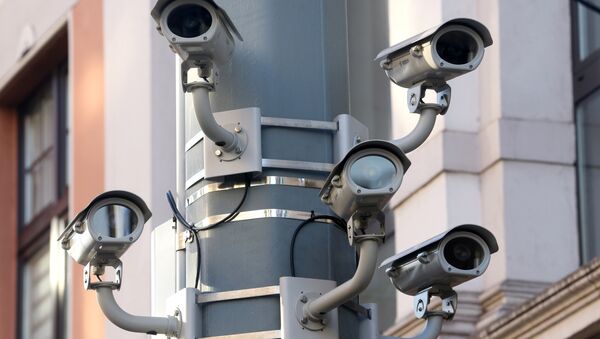The Somerville city council recently adopted a “Face Surveillance Full Ban Ordinance”, forbidding any department, agency or bureau to use facial recognition technology in public spaces. San Francisco was the first US city to introduce a ban in May.
“The San Francisco Police Department’s mission must be judiciously balanced with the need to protect civil rights and civil liberties, including privacy and free expression. We welcome safeguards to protect those rights while balancing the needs that protect the residents, visitors and businesses of San Francisco”, David Stevenson, director of strategic communications at the San Francisco Police Department, expressed his views on the issue.
Joel Engardio, vice president of Stop Crime SF argued that the technology will improve and should be implemented in the future.
“The technology will improve and it could be a useful tool for public safety when used responsibly and with greater accuracy. We should keep the door open for that possibility. Especially when facial recognition technology can help locate missing children, people with dementia and fight sex trafficking”, Engardio stated.
According to experts, facial recognition technology can not only recognize and distinguish unique facial characteristics but also assess a person's mental state. Asela Waidyalankara, a Sri Lankan technocrat and cybersecurity evangelist, said that the main advantage of the tech is its accuracy and speed, allowing it to reduce the work of law enforcement agencies by up to 75 percent while allowing for the contact-free and covert monitoring of suspects.
Despite assertions that the technology will protect and safeguard people, failure and mistakes are still a problem. “There is always a probability of error in this tech, given situations like identical twins, or non-Caucasian faces and racial bias", Waidyalankara noted.
Joe Purshouse, lecturer in criminal law at the University of East Anglia, echoed similar views, noting that while this technology can assist police with the process of identification, it is particularly intrusive.
“Unlike CCTV, the cameras take a biometric scan of an individual's face, like taking a fingerprint or DNA sample, except the scan is often taken from a distance and without the individual's knowledge or consent. There are questions over its accuracy, and research has indicated that it may disproportionately misidentify women and ethnic minorities, thus producing discriminatory outcomes”, Purshouse said.
US tech giant Amazon is one of the largest vendors of facial recognition software, and the company's own workers have been protesting its sale to US law enforcement and immigration agencies.
In January, researchers at Massachusetts Institute of Technology (MIT) released a study that revealing that facial recognition software mistook dark-skinned women for men 31 percent of the time, raising serious questions about Amazon's product.
In 2018, the American Civil Liberties Union (ACLU) tested Amazon software, comparing images of members of US Congress with a database of mugshots. Facial recognition software matched 28 members of Congress with criminals.
Experts agree that facial recognition tech must be regulated. “Children under 18 years of age should be excluded from facial recognition practices, and there should be much oversight and control when it comes to authorizing facial recognition, similar to when a suspect is to be wiretapped, which in the US requires authorization by a judge.
"Regulation should cover the way tech companies and law enforcement capture and store the data”, Waidyalankara stressed.
Anil Jain, distinguished professor at the Department of Computer Science & Engineering at Michigan State University, noted that despite widespread use of facial recognition, there are concerns about the 'privacy' of citizens.
“Will the FR [facial recognition] system be used to track individuals for no specific reason - Big brother is watching you!! Different nations and governments have different interpretations of what constitutes privacy and what constitutes fair use of FR technology. Citizens should be made aware of why and how FR is being used, who will have access to the face database and how the database will be safeguarded”.
Jain warned that a complete FR ban would be “detrimental to the development of the technology as well as to public safety".
The age-old "security vs privacy" debate depends upon the belief that those wishing to live in a society which is safe and secure must give up some privacy, "especially when you are in public places”, Jain said.
The next city to make their choice will be Oakland, California, with a vote next month on whether to ban FR by police and all other municipal agencies.
The views and opinions expressed are those of the speakers and do not necessarily reflect those of Sputnik.



